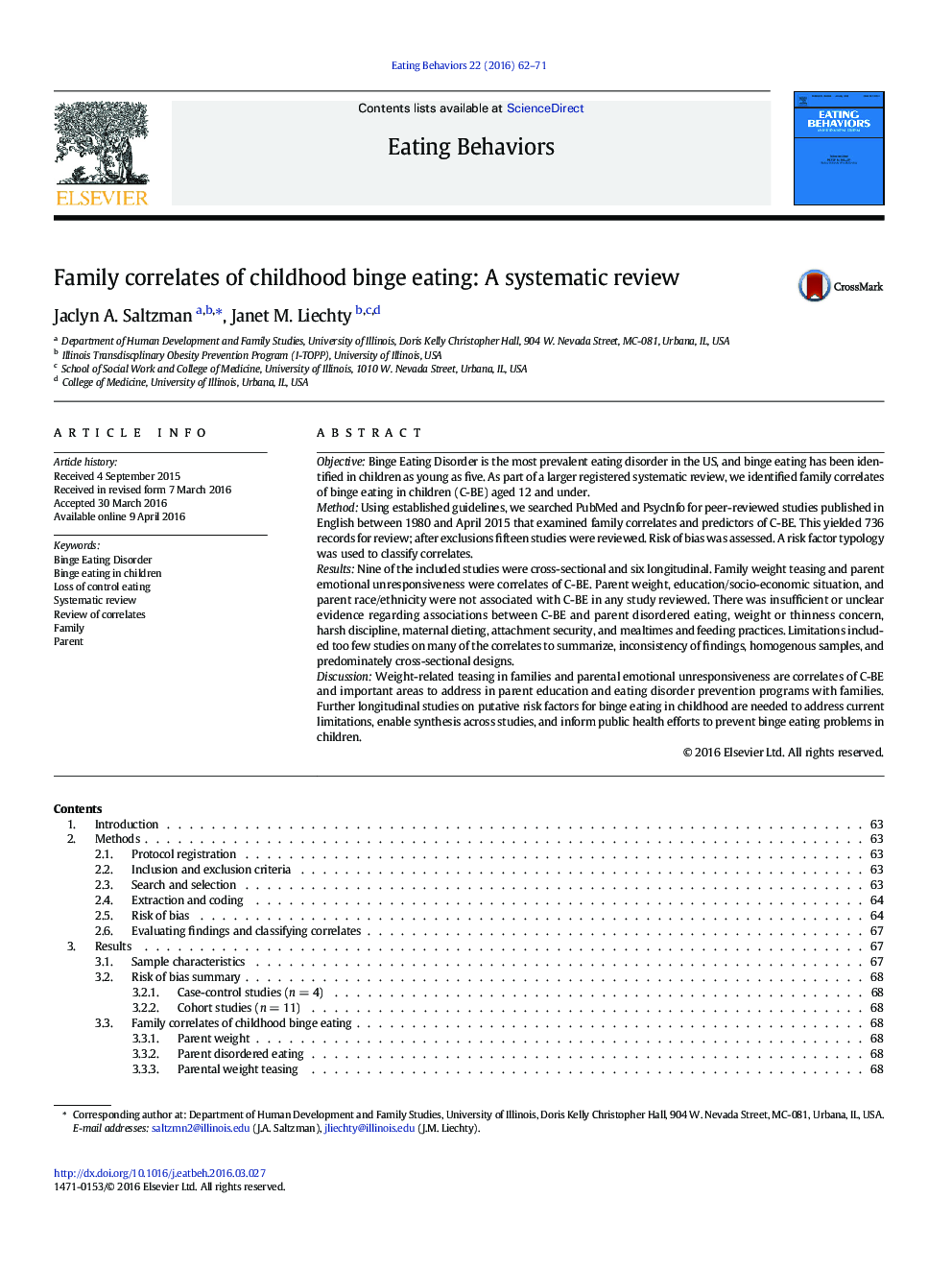| Article ID | Journal | Published Year | Pages | File Type |
|---|---|---|---|---|
| 906191 | Eating Behaviors | 2016 | 10 Pages |
•Weight teasing and parental ignoring are associated with child binge eating (C-BE).•Parent weight, education, and race/ethnicity are not associated with C-BE.•Studies are needed on parent–child relationships parent eating, & feeding practices.•More prospective studies are needed to characterize risk pathways for C-BE.
ObjectiveBinge Eating Disorder is the most prevalent eating disorder in the US, and binge eating has been identified in children as young as five. As part of a larger registered systematic review, we identified family correlates of binge eating in children (C-BE) aged 12 and under.MethodUsing established guidelines, we searched PubMed and PsycInfo for peer-reviewed studies published in English between 1980 and April 2015 that examined family correlates and predictors of C-BE. This yielded 736 records for review; after exclusions fifteen studies were reviewed. Risk of bias was assessed. A risk factor typology was used to classify correlates.ResultsNine of the included studies were cross-sectional and six longitudinal. Family weight teasing and parent emotional unresponsiveness were correlates of C-BE. Parent weight, education/socio-economic situation, and parent race/ethnicity were not associated with C-BE in any study reviewed. There was insufficient or unclear evidence regarding associations between C-BE and parent disordered eating, weight or thinness concern, harsh discipline, maternal dieting, attachment security, and mealtimes and feeding practices. Limitations included too few studies on many of the correlates to summarize, inconsistency of findings, homogenous samples, and predominately cross-sectional designs.DiscussionWeight-related teasing in families and parental emotional unresponsiveness are correlates of C-BE and important areas to address in parent education and eating disorder prevention programs with families. Further longitudinal studies on putative risk factors for binge eating in childhood are needed to address current limitations, enable synthesis across studies, and inform public health efforts to prevent binge eating problems in children.
